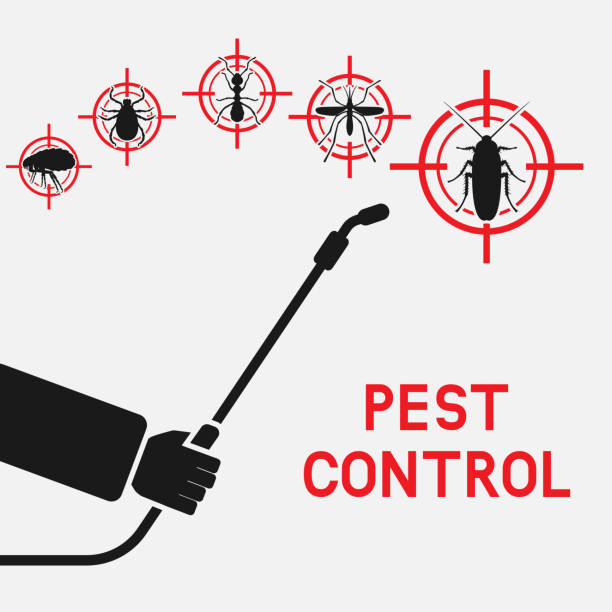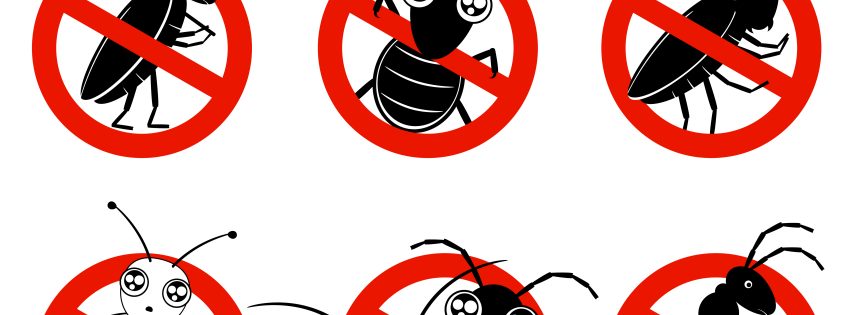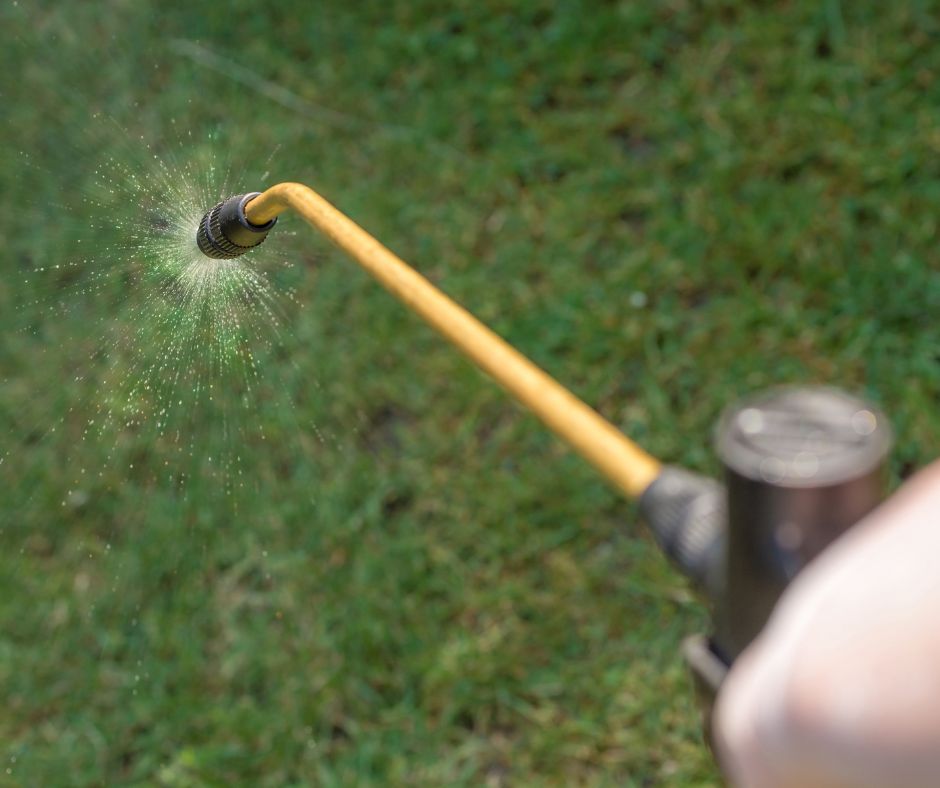Reveal the Value of Insect Control in Preserving a Healthy Setting and Therapy Methods

The Role of Insects in Ecosystems
Insects, often watched exclusively as nuisances, play a complex role in environments that is vital for keeping environmental balance. They contribute considerably to different eco-friendly processes, including pollination, vitamins and mineral cycling, and pest control. For example, many insect species, such as bees and butterflies, are essential pollinators for a wide variety of plants, which in turn supports biodiversity and food production.
In addition, pests function as victim for countless predators, producing a crucial web link in food internet. This connection makes certain the survival of numerous species and assists manage populaces within communities (Termite treatment Port Charlotte). Additionally, decomposer pests, such as specific beetles and fungis, are critical in damaging down raw material, therefore enhancing dirt and assisting in nutrition recycling.
Conversely, while parasites can be beneficial, their overpopulation or intrusion into non-native atmospheres may interfere with these ecological functions. This complexity highlights the relevance of understanding bug characteristics, as efficient pest management methods must take into consideration both their eco-friendly roles and prospective effect on human tasks. Stabilizing pest presence while lessening damage is crucial for maintaining the stability of environments and ensuring farming efficiency.
Health And Wellness Risks Linked With Parasites
The visibility of parasites in various environments extends beyond their eco-friendly roles, as they also posture considerable wellness risks to pets and people. Lots of insects, consisting of insects, rodents, and bloodsuckers, are service providers of illness that can have significant wellness implications. For example, rodents are recognized to transfer hantavirus and leptospirosis, both of which can cause extreme breathing and renal issues, respectively.
Bugs such as ticks and mosquitoes are notorious for spreading out vector-borne illness like jungle fever, dengue high temperature, and Lyme disease. These health problems can cause high morbidity and death rates, specifically in vulnerable populaces. In addition, bugs like roaches and insects can exacerbate allergies and asthma, adding to respiratory troubles in individuals, especially those with pre-existing problems.
Additionally, the presence of bugs can cause mental anxiety and pain, influencing overall wellness. Contamination of food and surface areas by insect droppings and stays can cause foodborne illnesses, highlighting the significance of maintaining sanitary problems. Recognizing the wellness risks linked with insects is essential in recognizing the need of effective bug management strategies to guard human and animal wellness.

Benefits of Effective Parasite Control
Effective insect control is vital for preserving a secure and healthy environment, as it continually reduces the countless dangers associated with parasite invasions. One of the key advantages of effective insect management is the reduction of health dangers. Parasites such as rodents, cockroaches, and insects are vectors for illness that can influence both family pets and humans. By regulating these populations, the chance of illness transmission is considerably lowered.
In addition, effective pest control safeguards home and structures from damages. Lots of bugs, like termites and woodworker ants, can trigger substantial structural damage that may require find this costly repair services. By proactively handling these invasions, house owners and organizations can protect their financial investments.
Another substantial benefit is the renovation of general lifestyle. A pest-free atmosphere adds to psychological health and minimizes tension associated with invasions. Moreover, effective insect control cultivates a much safer environment for youngsters and animals, making certain that homes continue to be shelters without check my reference disease-causing organisms and unsafe chemicals.
Typical Insect Control Strategies

In the realm of bug monitoring, various techniques are employed to deal with infestations effectively. These methods can be extensively classified right into 3 major strategies: social, mechanical, and chemical controls.
Social control includes customizing practices to reduce bug survival, recreation, and facility. This may include plant turning, proper hygiene, and habitat manipulation, which jointly create an environment less conducive to pest spreading.
Mechanical control uses physical approaches to remove parasites (Termite treatment Port Charlotte). Methods such as vacuum cleaners, obstacles, and traps are generally used to directly get rid of bugs from a location. This technique is specifically efficient for handling rodents and bugs without using unsafe chemicals
Chemical control entails the application of pesticides to take care of parasites. These materials can be classified into fungicides, herbicides, and pesticides, each targeting particular sorts of parasites. It is essential to make use of these chemicals carefully, sticking to security standards and guidelines to lessen potential harm to non-target species and the setting.
Each bug control method has its benefits and limitations, and commonly, an integrated approach combining several methods yields the very best cause keeping a pest-free environment.
Sustainable Insect Monitoring Practices
Sustainable bug monitoring methods encompass a variety of strategies created to minimize environmental effect while properly regulating bug populations. These practices focus on using environmentally friendly methods over chemical pesticides, therefore lowering the danger of damage to non-target species, consisting of advantageous insects, wildlife, and humans.
Integrated Bug Management (IPM) is a cornerstone of lasting practices, incorporating organic, social, mechanical, and chemical strategies to manage parasites. For circumstances, biological control involves presenting all-natural killers or parasites to subdue bug populations. Social techniques, such as plant rotation and polyculture, interfere with pest life process and improve ecological community resilience.
Mechanical approaches, such as catches or obstacles, can efficiently stop pest gain access to without chemical intervention. Additionally, preserving healthy and balanced click to find out more environments with appropriate dirt management, plant health, and biodiversity can naturally mitigate pest problems.
Education and learning and recognition are essential components, encouraging individuals and neighborhoods to acknowledge pest threats early and carry out safety nets. Termite treatment Port Charlotte. By cultivating an all natural technique that stabilizes parasite control with eco-friendly honesty, lasting parasite administration methods not only safeguard plants and structures yet likewise contribute to a much healthier atmosphere for future generations
Final Thought

Recognizing the health and wellness threats linked with insects is vital in recognizing the need of efficient bug administration methods to secure animal and human health.
Efficient parasite control is essential for preserving a healthy and risk-free atmosphere, as it constantly reduces the countless risks linked with parasite infestations.Integrated Pest Administration (IPM) is a foundation of lasting methods, incorporating biological, cultural, mechanical, and chemical strategies to handle insects. By recognizing the function of insects, acknowledging involved health and wellness dangers, and employing diverse treatment methods, a sustainable method to pest administration can be achieved. Integrated Pest Administration (IPM) emphasizes an alternative technique that reduces damage to helpful microorganisms while effectively regulating bug populaces.